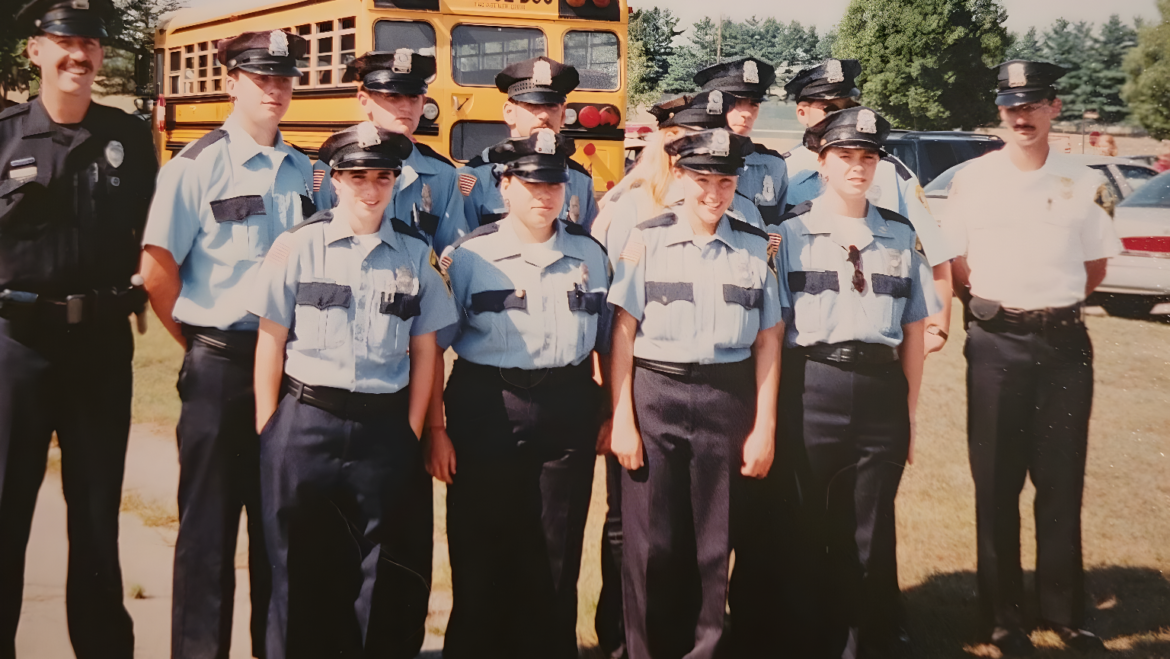Author: Sergeant Richard Peck Fairfield Police Department – 3/1/2024
Introduction to Cadet Programs
Youth law enforcement education programs, often known as Cadet Programs, are pivotal in shaping the future landscape of law enforcement and enhancing community relations. These programs act as a bridge between the youth and the law enforcement profession, akin to how tee-ball is an introductory platform to baseball. By introducing young individuals to the varied facets of law enforcement, Cadet Programs instill essential values and skills, facilitating personal growth and responsible citizenship.
Objectives and Audience
The primary aim of Cadet Programs is not only to prepare future law enforcement officers but also to develop well-rounded individuals equipped with critical thinking, leadership, and civic engagement skills. These programs are designed for a wide range of participants, from those with a keen interest in a law enforcement career to individuals aiming to enhance their community involvement and personal development. It’s crucial to dispel the misconception for agencies and parents alike that these programs are for troubled youth needing redirection. In contrast, they provide an inclusive environment for all young individuals to thrive, regardless of their future career aspirations.
Benefits to Communities and Law Enforcement Agencies
Cadet Programs represent a commitment by law enforcement agencies to develop future generations. These initiatives are crucial in fostering strong and dynamic communities through the empowerment of young people with critical knowledge and vital life skills. For these agencies, the investment in such programs means potentially attracting highly qualified candidates to their ranks, all the while benefiting from cadets with years of collaborative volunteer work alongside seasoned officers. Cadets who advance to become sworn officers often experience a seamless transition into their professional roles, thanks to their comprehensive preparatory experiences.
Beyond serving as a recruitment pipeline, Cadet Programs significantly enhance community policing efforts. They foster trust and collaboration between law enforcement entities and the communities they serve. Cadets (who do not have arrest powers) play crucial support roles in community service. They assist in logistical tasks like area searches, help manage shelters during emergencies, participate in community clean-up events, and manage parking directions for major town events like road races, carnivals, and fireworks displays. Their active involvement in these areas not only supports law enforcement efforts but also strengthens community bonds.
Program Structure and Activities
Cadet Programs typically offer a structured curriculum that includes both classroom learning and practical experiences. Topics covered may range from legal studies, ethics, and communication skills to physical fitness and first aid. Furthermore, cadets often receive hands-on training through ride-alongs, community service projects, and scenario-based exercises, which provide a glimpse into the real-world challenges and responsibilities of law enforcement officers.
Additionally, these programs emphasize leadership development and teamwork, encouraging cadets to take on leadership roles within the program and their communities. By doing so, they learn to lead by example, develop empathy, and understand the importance of serving others.
Impact on Individual Cadets
Participation in Cadet Programs can have a profound impact on an individual’s life. Cadets develop a sense of discipline, respect, and integrity, which are valuable not only in law enforcement but in all aspects of life. The mentorship provided by experienced officers and the supportive environment help cadets grow in confidence and aspire to their full potential. Many alumni of these programs reflect on their experiences as transformative, attributing their success in various careers to the foundational skills and values they acquired as cadets.
Conclusion: A Vision for the Future
Youth Law Enforcement Education Programs are more than just training grounds for future police officers; they are essential investments in community solidarity and safety. By promoting an inclusive, proactive, and collaborative model of community policing, these programs lay the foundation for a new era of public service. As these initiatives continue to expand and adapt to new challenges, they promise to cultivate a generation of leaders committed to fostering safe and inclusive communities. This concluding section will reflect on the evolving nature of Cadet Programs and their role in shaping a brighter, more cooperative future for law enforcement and community relations.
